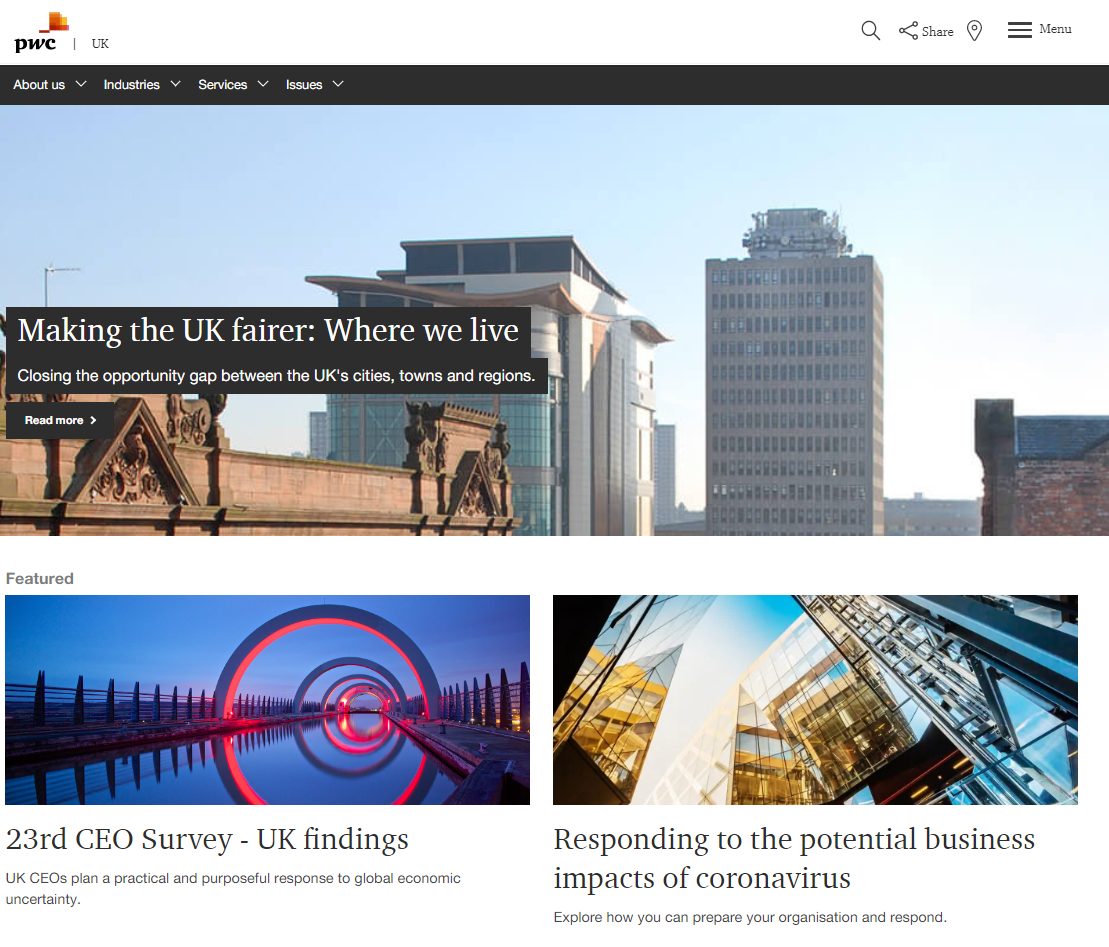In a past life, I worked as a digital marketing consultant. It was my job to get to know a business and pull out what made them unique and valuable to create a successful website and online marketing strategy.
It was always the professional services companies that were the hardest to work on.
These firms had some of the cleverest people, the best marketing support and the most interesting brand stories of any firm. But it was so difficult to build them a web property that worked for them.
To understand why it helps to know that a website really has to do two things:
- Tell people what you do
- Tell people why they should choose you and not someone else
Across a professional services firm, there are people who can tell you exactly what they do and why they are the best choice. Ask an M&A lawyer and she'll tell you that she specialises in mining and minerals mergers in European jurisdictions. She'll tell you that she's the best choice because nobody else has the same experience or successful track record leading more than 20 major mergers.
That's brilliant - but when you have a firm of people all telling different versions of a highly detailed and industry-specific story it makes the overall picture very difficult to distill down on one website. You run into the trap of becoming one more company saying "we have the best people".
All across a professional services business, there are clever people involved in a dynamic marketplace, they are learning, developing and pushing to be the best there is and provide value for the firm. There is such a fast-paced environment that someone coming in to learn this could spend a year getting to know one part of the business and how to represent that online.
But by the time you've taken a snapshot of the business and published that online - the market has moved on and your carefully constructed site is out of date again.
It's this conflict between a dynamic business and a static web property that makes professional services websites so difficult to build.
If you look at any of the big 4's websites or any of the magic circle law firms - you'll quickly see the emphasis placed on Dynamic Content. On the thought leadership, news, events, and insights that demonstrate the firm's true value to clients.
My advice to anyone building a website for a professional services firm is this. Focus on the people and knowledge that provide the real competitive advantage for the firm. It is only by pulling these insights and people to the fore that you can demonstrate what makes the business the best choice for clients.




A value proposition defines the unique value you deliver to your clients that other attorneys don’t. It outlines the reasons why your client should choose you and should ring throughout your law firm website design. If you don’t know your unique value proposition, follow these steps. Identify your target client’s main concerns. Take some time to define your client’s main concerns. These concerns will depend on your main service areas as well as the client you want to attract. This is the perfect place to use your client persona or avatar. Define how your services solve these concerns by listing the benefits. Now, define how your services solve these concerns. Position yourself as the provider of the value. Using your website, position yourself as the provider of this unique value by placing it front and center on your home page and throughout your website.
 unknownx500
unknownx500


/Passle/53d0c8edb00e7e0540c9b34b/MediaLibrary/Images/2026-01-26-00-33-49-963-6976b66dc26ba4a239c0742b.jpg)

/Passle/53d0c8edb00e7e0540c9b34b/SearchServiceImages/2025-11-18-09-12-01-075-691c3861104d74a7c40d49a0.jpg)
/Passle/53d0c8edb00e7e0540c9b34b/MediaLibrary/Images/2025-10-29-11-42-38-012-6901fdaedf6fa538eeb46958.jpg)
/Passle/53d0c8edb00e7e0540c9b34b/MediaLibrary/Images/2025-10-22-12-07-42-734-68f8c90e94603fa39915d618.jpg)




